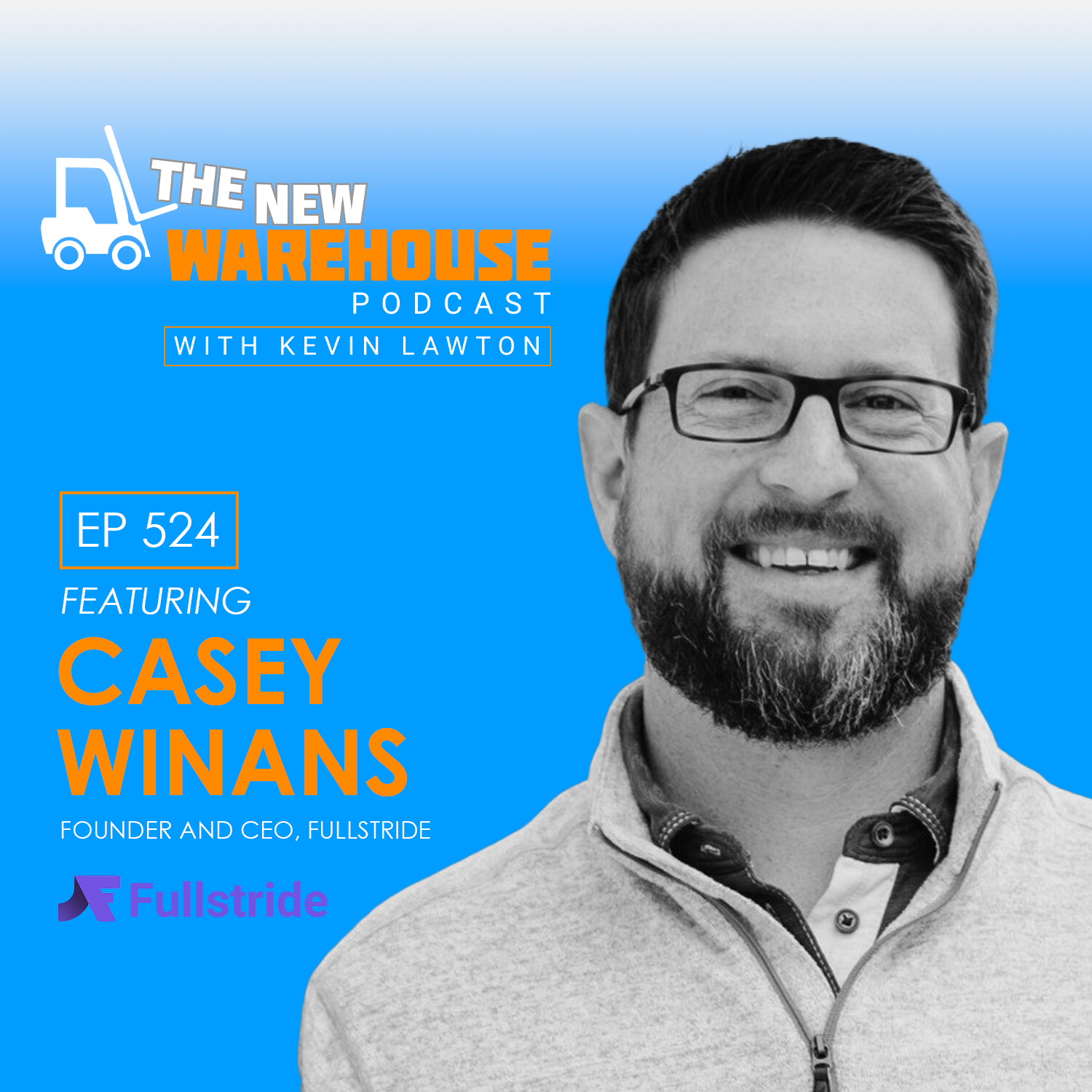
524: Fullstride Helps Businesses Pursue their First WMS
Today, The New Warehouse Podcast welcomes Casey Winans, founder and CEO of Fullstride, a seasoned expert in warehouse management systems (WMS). With over 20 years of experience in supply chain management, Casey brings a wealth of knowledge and a passion for optimizing warehouse operations. In this episode, he shares the story behind Fullstride, a company focused on helping mid-sized businesses navigate the complex world of pursuing their first WMS. We explore the challenges and opportunities in choosing the right WMS and the importance of preparation and process clarity before engaging with vendors.
The Journey to Fullstride
Casey’s career journey is a testament to the power of persistence and passion. Starting with a background in management information systems, he inadvertently found himself immersed supply chain management. His experiences building a parcel manifesting system and working with 3PLs during his time at GE laid the foundation for Fullstride. The company was born out of a desire to do things differently—by focusing on smaller, growth-oriented businesses looking to implement their first WMS.
The Importance of Clarity Before Implementation
Fullstride’s approach to WMS implementation is rooted in the principle of “clarity first.” Before engaging with vendors, Casey emphasizes that businesses need well-defined processes. “When you start asking questions, it quickly becomes clear that assumptions about process clarity are often misplaced,” Casey explains. He emphasizes the importance of involving both leadership and frontline workers in the conversation. Fullstride helps bridge potential disconnects, ensuring that everyone understands the impact of their contributions. This preparation smoothens the transition and empowers teams to navigate the change more effectively.
Navigating the WMS Landscape
The current WMS landscape is vast, with numerous options ranging from established giants to innovative startups. Casey points out that while more prominent players have advantages, they often come with “baggage.” This baggage comes in the form of high maintenance costs and complex implementation processes. In contrast, newer vendors, particularly those adopting a SaaS model, offer more flexibility and are often better suited for mid-sized businesses. “The days of long, costly WMS upgrades are fading,” Casey notes, highlighting the shift towards more accessible cloud-based solutions to scale and maintain. However, he advises caution when considering startups, urging businesses to evaluate capitalization, execution ability, and long-term viability.
Key Takeaways
- Preparation is Key: Before selecting a WMS, ensure that your business processes are well-defined and all stakeholders are aligned.
- Consider Flexibility: Newer, SaaS-based WMS solutions may offer greater flexibility and lower costs, especially for mid-sized businesses.
- Evaluate Vendors Carefully: Look beyond the technology; consider the vendor’s ability to execute and support your business in the long term.
Listen to the episode below and leave your thoughts in the comments.
Guest Information
For more information on Fullstride, click here.
To connect with Casey on LinkedIn, click here.
For more information about WMS, check out the podcasts below.
Live from WERC 2024: Tractor Supply Co
Momentum 2024: Pushing Possible with Manhattan Associates
430: The Evolution of WMS Implementation with Tryon Solutions

Helping Businesses Pursue their First WMS - Fullstride
[…] Listen Now […]